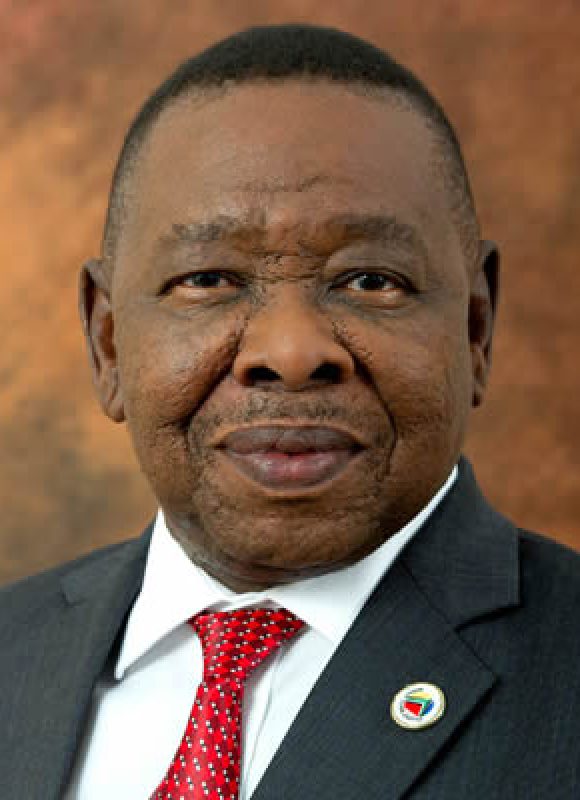PIONEER
Bonginkosi Blade Nzimande

Politician | Unionist | Constitution Drafter
Born: 14 April 1958
“The Freedom Charter eloquently declared that the doors of learning and culture should be opened. Among its provisions were that education should be free, universal, compulsory and equal (basic) ... It pledged that adult illiteracy would be overcome through the introduction of mass literacy programmes … "
Who is
Bonginkosi Blade Nzimande?
During apartheid worked on the African National Congress’ (ANC) project to prepare for a new democratic South Africa, subsequently responsible for drafting and negotiating the Preamble to the Constitution and became a Member of Parliament and leading politician.
Professions
and Roles
Politician, Minister of Higher Education, Science and Technology, education specialist, ANC member, South African Communist Party (SACP) General Secretary, member of the ANC’s National Executive Committee (NEC).
Best Known For
Negotiator for the SACP at Convention for a Democratic South Africa (CODESA) and a member of the party’s National Working Committee (NWC) between 1994 and 1997.
Life highlights
- Nzimande was involved with student struggles during his studies at the University of Zululand.
- He founded a progressive isiZulu academic journal, Injula, in the mid-1980s.
- Between 1982 and 1984, Nzimande organised secret classes about Marxism for students in Pietermaritzburg.
- Nzimande worked with the underground ANC from 1986, when he was drawn into the ANC’s research and policy project called Post-Apartheid South Africa (PASA), aimed at preparing the ANC for a new democratic South Africa.
- He lectured Industrial Psychology at the University of Natal in 1987.
- Nzimande became a member of Parliament (MP) in 1994.
- In 1996, Nzimande was responsible for drafting and negotiating the Preamble to the Constitution.
- He served as the first Chairperson of Parliament’s Portfolio Committee on Education between 1994 and 1999.
- Nzimande then served as a member of the National Education Union of South Africa, which later became the South African Democratic Teachers’ Union (the biggest union of teachers in the country).
- Nzimande was appointed as the first Minister of Higher Education and Training in 2009; Nzimande was reappointed and served in that role between 2014 and 2017.
- Nzimande was then appointed Minister of Transport between 2018 and May 2019.
- President Ramaphosa reinstated him as the Minister of Higher Education, Science and Technology in May 2019.
IN THEIR OWN WORDS
“The Freedom Charter eloquently declared that the doors of learning and culture should be opened. Among its provisions were that education should be free, universal, compulsory and equal (basic) … It pledged that adult illiteracy would be overcome through the introduction of mass literacy programmes … It is important that we endeavour in collaboration with the private sector, government and all other stakeholders to give meaning and content to the aspirations stated in the Freedom Charter and the rights enshrined in our Constitution. Similarly, it is important to acknowledge and defend the gains made since the adoption of the Constitution in 1996, and to use these as a basis to take our struggles forward in the transformation of South Africa’s education system.”
– Blade Nzimande
IN THE WORDS OF OTHERS
“The SACP thanks Cde Blade for his dedication in serving our people and commitment to education transformation. Cde Blade has set very important parameters and standards in the transformation of higher education and training. As the SACP we are committed to continue the struggle for the transformation of higher education, working together with all the progressive forces in this terrain.”
– South African Communist Party Statement, 17 October 2017
Parliament of the Republic of South Africa (2018) Theme Committee Book Series 1-6
https://www.sacp.org.za/content/sacp-statement-removal-cde-dr-blade-nzimande-cabinet
